Network Card Reader
Network Card Reader is supported by Toshiba, OKI, Sharp, and Xerox devices.
FCC statements
§ 15.21 Information to user
The user's manual or instruction manual for an intentional or unintentional radiator shall caution the user that changes or modifications not expressly approved by the party responsible for compliance could void the user's authority to operate the equipment. In cases where the manual is provided only in a form other than paper, such as on a computer disk or over the Internet, the information required by this section may be included in the manual in that alternative form, provided the user can reasonably be expected to have the capability to access information in that form.
§ 15.105 Information to the user
This equipment has been tested and found to comply with the limits for a Class A digital device, pursuant to part 15 of the FCC Rules. These limits are designed to provide reasonable protection against harmful interference when the equipment is operated in a commercial environment. This equipment generates, uses, and can radiate radio frequency energy and, if not installed and used in accordance with the instruction manual, may cause harmful interference to radio communications. The operation of this equipment in a residential area is likely to cause harmful interference in which case the user will be required to correct the interference at his own expense.
Network Card Reader Overview
Dispatcher Paragon Ethernet Reader is based on YSoft SafeQ Terminal UltraLight. Dispatcher Paragon Ethernet Reader provides a compact, fast, and simple user interface for authentication to a printer. It has no display available, therefore, user interaction is limited to status LEDs. User authentication (on Dispatcher Paragon Ethernet Reader) is only possible with a card.
There are two types of Network Card Reader:
-
with an embedded card reader (on the left)
-
with an external card reader connected with an RS-232 cable connected to a serial port in Network Card Reader (on the right)
The following documentation is related to both types of Network Card Readers. Therefore, you might encounter minor differences when using Network Card Reader with an external card reader.
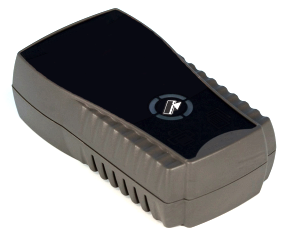
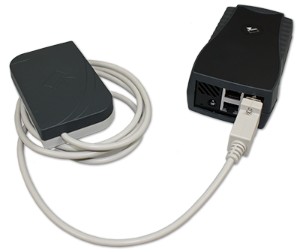
System Overview
The purpose of Dispatcher Paragon
Ethernet Reader is to handle user authentication and authentication to the device using a card. A user can also use PIN authentication (using the MFD integrated panel).
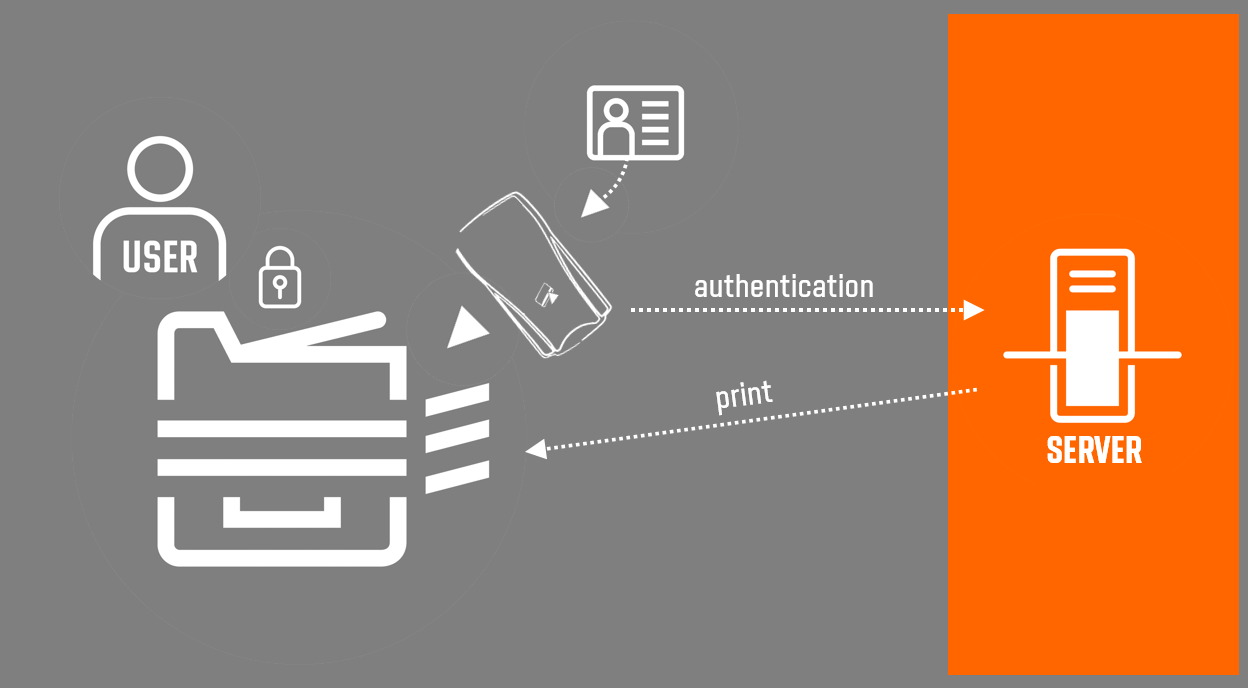
Only selected card readers are supported by Dispatcher Paragon
Ethernet Reader.
Dispatcher Paragon Ethernet Reader is equipped with a 2-ports network switch, and so it is not necessary to provide another Ethernet socket for connection – the copier or printer can be connected via the terminal. It features a microcomputer, flash ROM, network interface, and a card reader.
The terminal is powered by an external power supply, which is also included in the installation package.
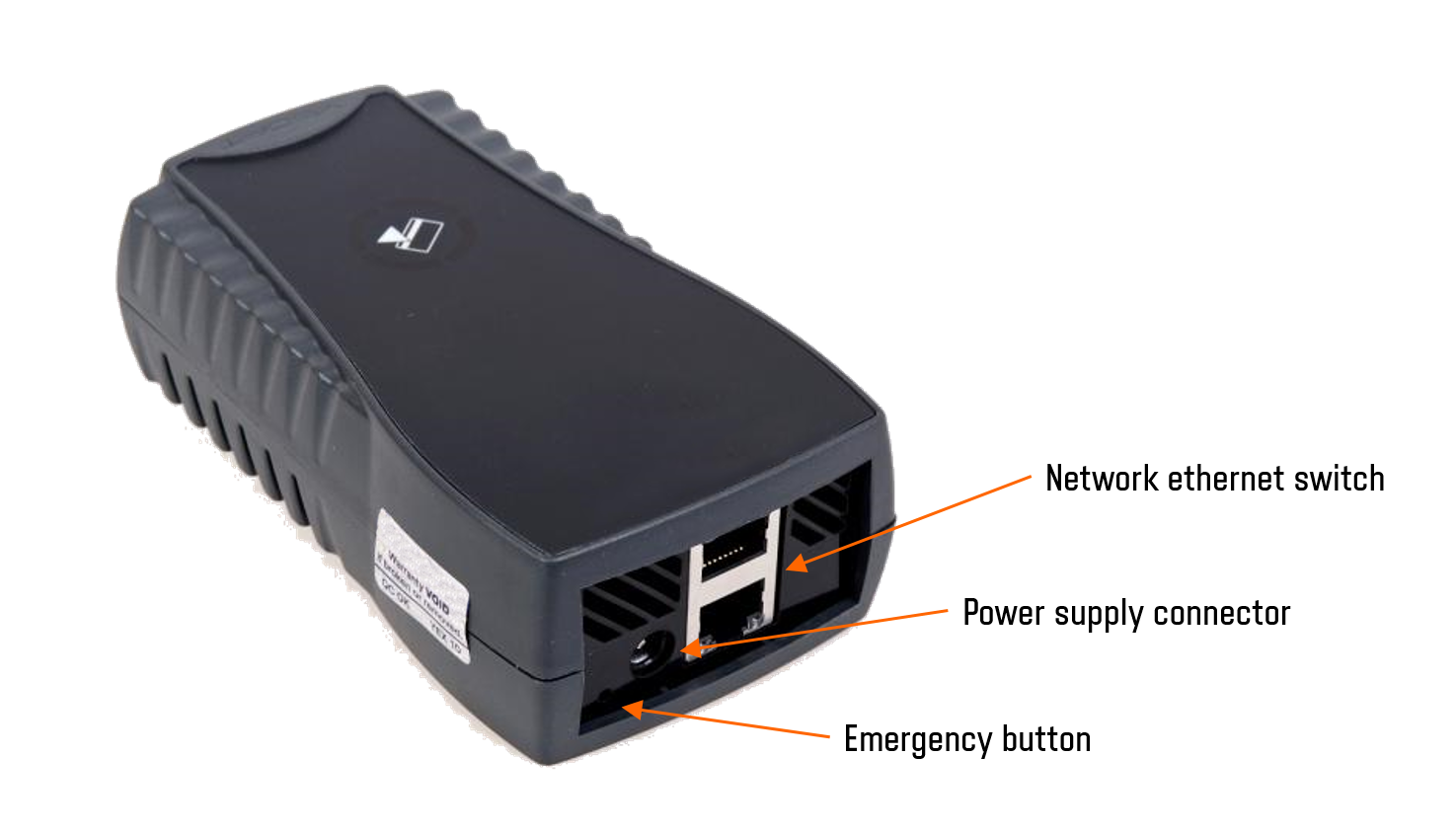
The emergency button is used for resetting the terminal to its default settings.
Dispatcher Paragon Ethernet Reader Specifications
|
Parameter |
Value |
|
Identification |
Using a card reader |
|
Network |
2-port 10/100 Mbit switch (auto MDI/MDIX) |
|
Processor |
Freescale Coldfire v2 |
|
Memory |
64 kB RAM, 512 kB Flash |
|
Electric power supply input |
12 V DC |
|
Maximum current input |
1.0 A |
|
Working temperature |
+ 5°C to + 35°C |
|
Storage temperature |
0°C to + 50°C |
|
Working air humidity |
20% to 85% without condensation |
|
Storage air humidity |
8% to 85% without condensation |
|
Resistance to magnetic fields |
no added resistance |
Configuring the Terminal
Dispatcher Paragon Ethernet Reader requires a TCP/IP connection to the Dispatcher Paragon server. Dispatcher Paragon Ethernet Reader has its own IP and MAC address.
For proper network configuration, you can use:
-
Dispatcher Paragon Terminal Configuration utility (terminal config) or
-
The configuration utility for hardware terminals (Termtool).
There is a default network configuration used for Dispatcher Paragon Ethernet Reader:
-
DHCP=0
-
IP=192.168.0.100
-
NETMASK=255.255.255.0
-
GATEWAY=192.168.0.254
-
DNS=192.168.0.254
-
SERVERIP=192.168.0.254:5011
-
SERVERUPD=192.168.0.254:4096
The SERVERIP corresponds to the IP address and port of the Dispatcher Paragon Terminal Server. The IP and port are used for card authentication.
The SERVERUDP corresponds to the Dispatcher Paragon server and serves for firmware updates.
Configuring the Dispatcher Paragon Server
After the Dispatcher Paragon Ethernet Reader is properly configured, it must be connected to Dispatcher Paragon.
Assume that the Dispatcher Paragon server and Dispatcher Paragon Terminal Server are already installed and running.
-
Log into the Dispatcher Paragon Management Service web administration with sufficient rights to manage devices.
-
Go to the Devices > Printers section, and click the Edit link next to the device.
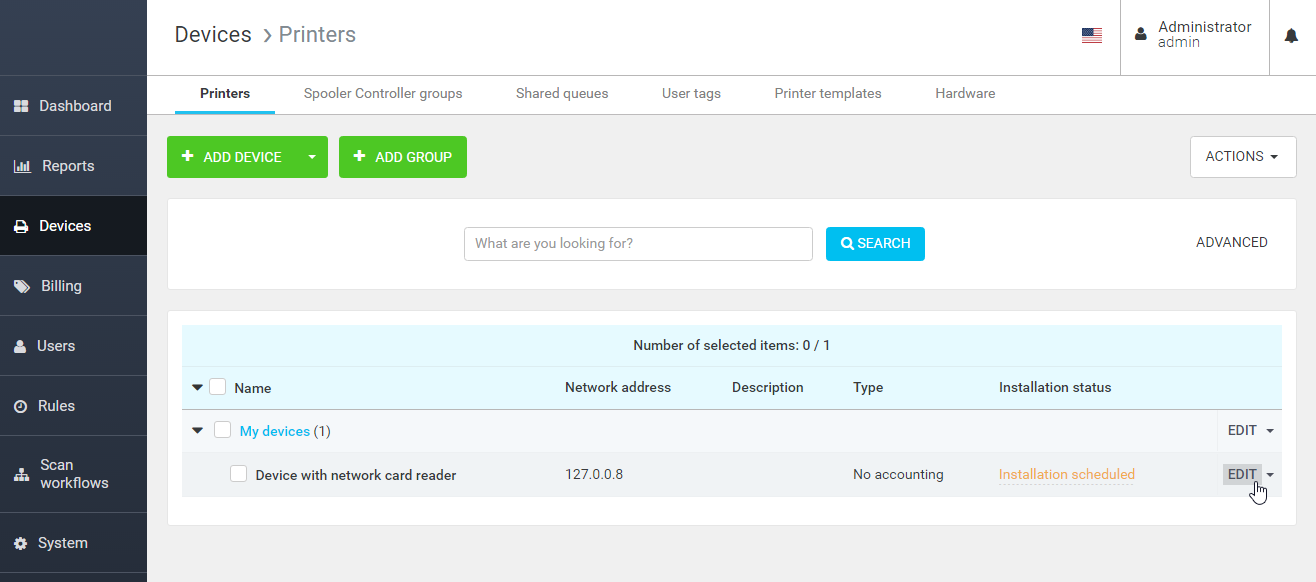
-
Go to the Terminal section and enter the Network card reader serial number. This serial number equals the serial number written in the Dispatcher Paragon Terminal Configuration util (first column). Then press the Save button to apply the new settings. NOTE: If you want to add a Network Card Reader serial number, one of the authentication methods with a card must be selected.
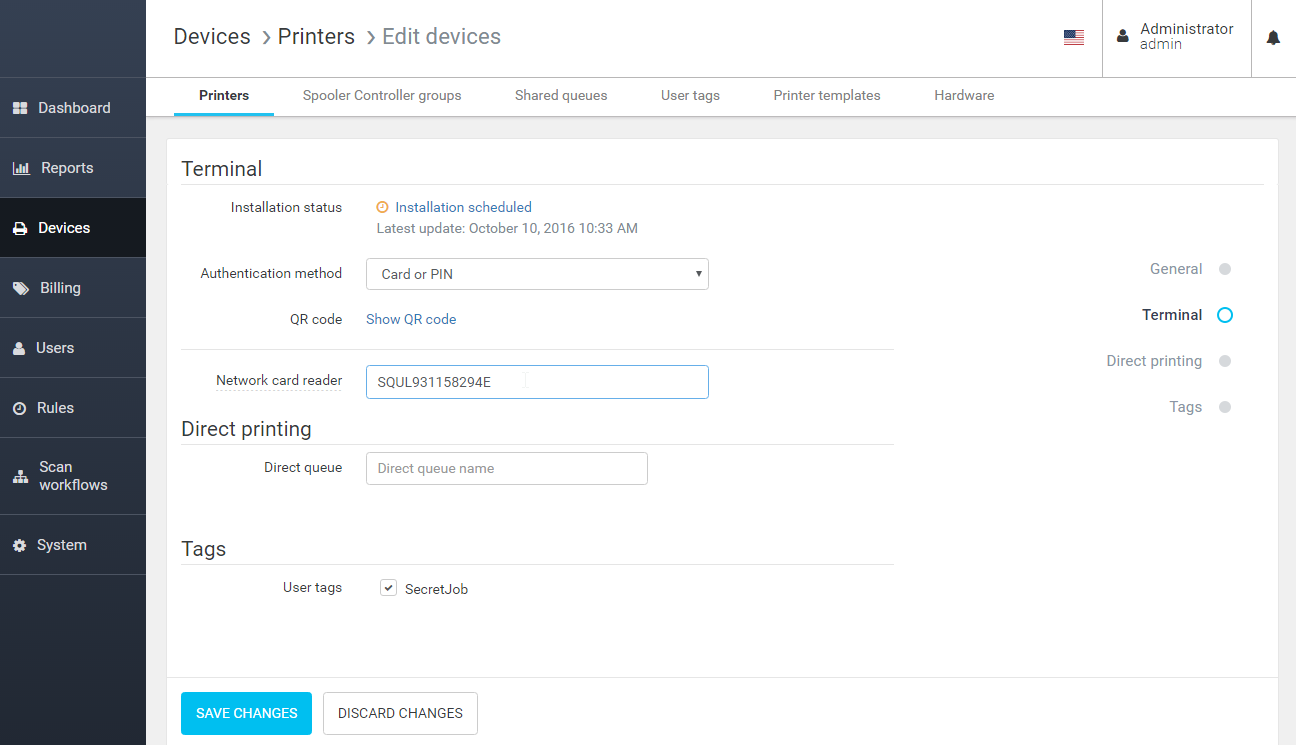
-
The installation is successfully finished, and the Dispatcher Paragon Ethernet Reader is successfully configured.
Dispatcher Paragon Ethernet Reader Service Procedures
Service Procedures
For more info about all service procedures, please visit: Performing Terminal UltraLight Service Procedures.
Service Firmware
Service firmware is the most important part of the reader firmware. Right after powering up, it will check the emergency button if any action is required. Then it will check the normal firmware for integrity. If the normal firmware is not valid, then the emergency firmware will connect to the server in emergency mode and download the firmware. If the normal firmware integrity is OK, it starts.
Reader Firmware
Dispatcher Paragon Ethernet Reader firmware is the main part of the firmware. It initializes the network, auto detects readers, and sends the card number to the server when a card is placed. By default, the firmware starts the UDP locator server, which will help detect available readers on the local network. Also, the TCP configuration server starts.